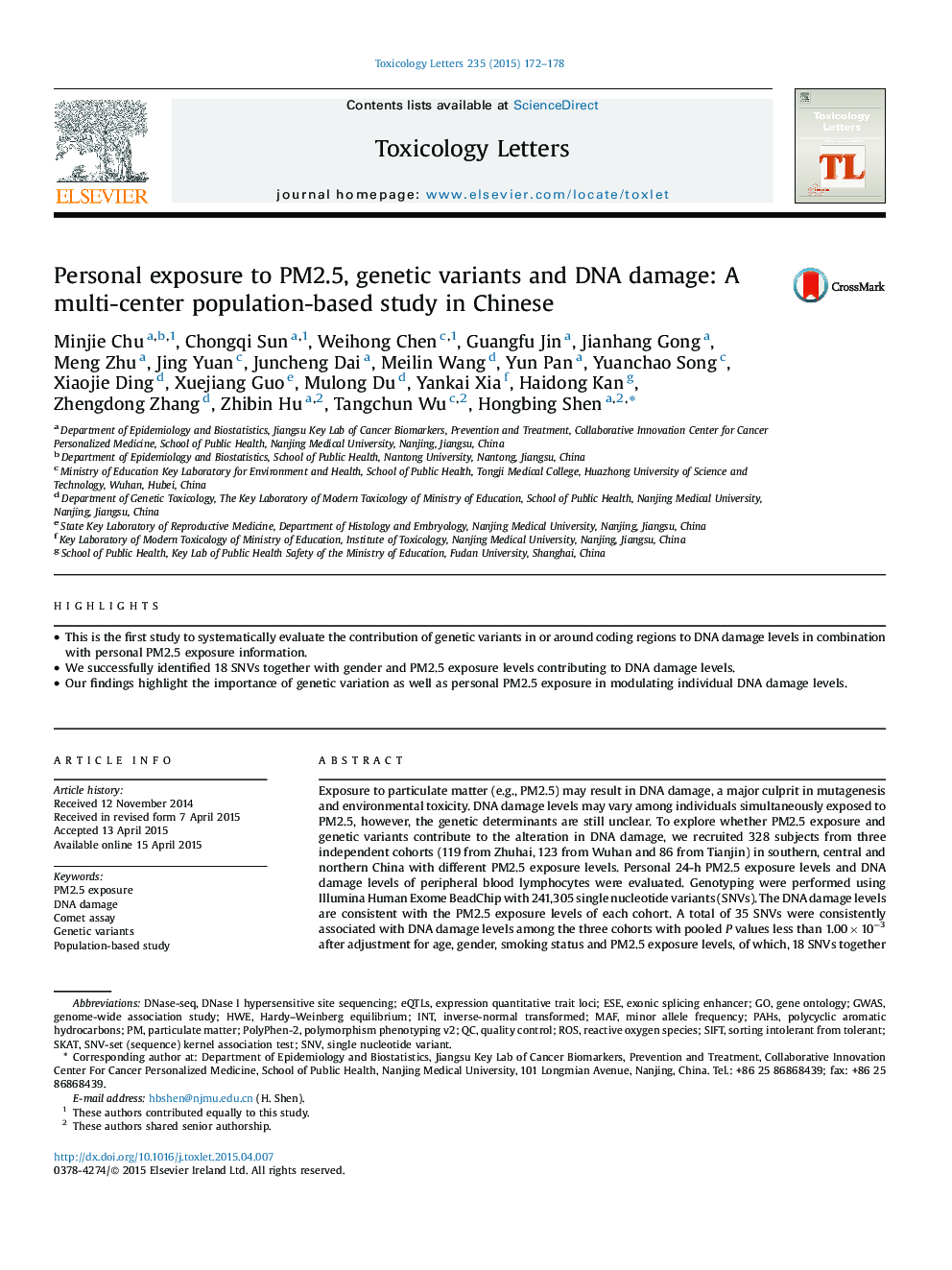| Article ID | Journal | Published Year | Pages | File Type |
|---|---|---|---|---|
| 2598833 | Toxicology Letters | 2015 | 7 Pages |
•This is the first study to systematically evaluate the contribution of genetic variants in or around coding regions to DNA damage levels in combination with personal PM2.5 exposure information.•We successfully identified 18 SNVs together with gender and PM2.5 exposure levels contributing to DNA damage levels.•Our findings highlight the importance of genetic variation as well as personal PM2.5 exposure in modulating individual DNA damage levels.
Exposure to particulate matter (e.g., PM2.5) may result in DNA damage, a major culprit in mutagenesis and environmental toxicity. DNA damage levels may vary among individuals simultaneously exposed to PM2.5, however, the genetic determinants are still unclear. To explore whether PM2.5 exposure and genetic variants contribute to the alteration in DNA damage, we recruited 328 subjects from three independent cohorts (119 from Zhuhai, 123 from Wuhan and 86 from Tianjin) in southern, central and northern China with different PM2.5 exposure levels. Personal 24-h PM2.5 exposure levels and DNA damage levels of peripheral blood lymphocytes were evaluated. Genotyping were performed using Illumina Human Exome BeadChip with 241,305 single nucleotide variants (SNVs). The DNA damage levels are consistent with the PM2.5 exposure levels of each cohort. A total of 35 SNVs were consistently associated with DNA damage levels among the three cohorts with pooled P values less than 1.00 × 10−3 after adjustment for age, gender, smoking status and PM2.5 exposure levels, of which, 18 SNVs together with gender and PM2.5 exposure levels were independent factors contributing to DNA damage. Gene-based test revealed 3 genes significantly associated with DNA damage levels (P = 5.11 × 10−3 for POLH, P = 2.88 × 10−3 for RIT2 and P = 2.29 × 10−2 for CNTN4). Gene ontology (GO) analyses indicated that the identified variants were significantly enriched in DNA damage response pathway. Our findings highlight the importance of genetic variation as well as personal PM2.5 exposure in modulating individual DNA damage levels.
